A construction accident report is a crucial sample document that details unfortunate incidents at construction sites. These reports serve to document the specifics of accidents, including date, time, location,…
continue readingYou can also keep track of your progress especially if you are required in class to read books. If you are an adult and you simply read as a pastime, having a reading log ensures that you maintain your reading habits. This is especially important since there are only 27% of US adults who read an entire book or in part based on a Pew Research Center 2018 study and those numbers are far too low already.
50+ Sample Reading Log Templates
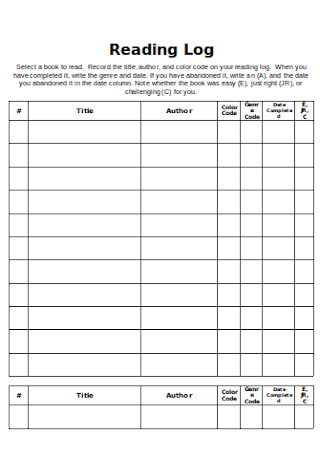
Reading Log
download now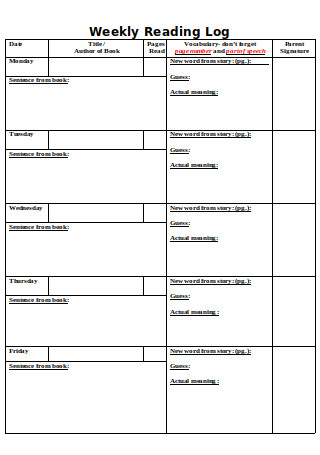
Weekly Reading Log
download now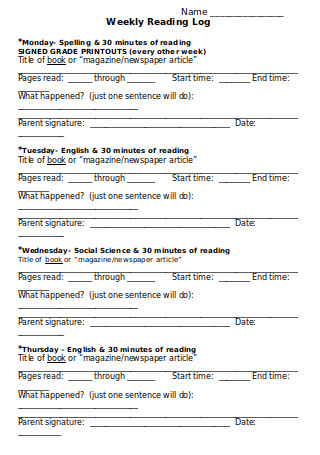
Sample Weekly Reading Log
download now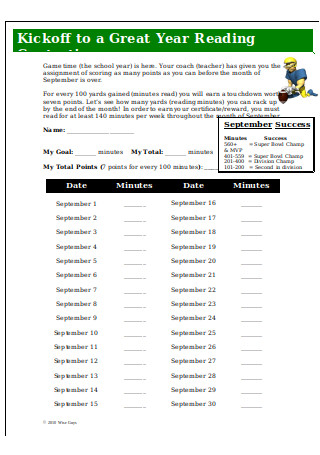
September Reading Log
download now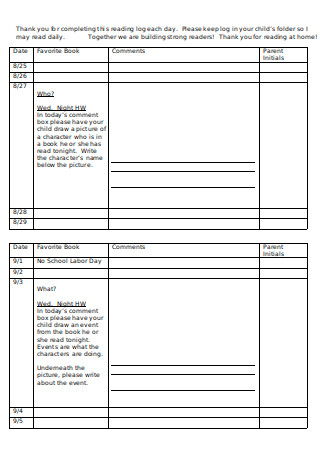
First Quarter Reading Log
download now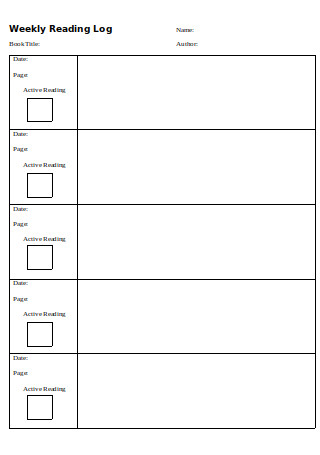
Adult Weekly Reading Log
download now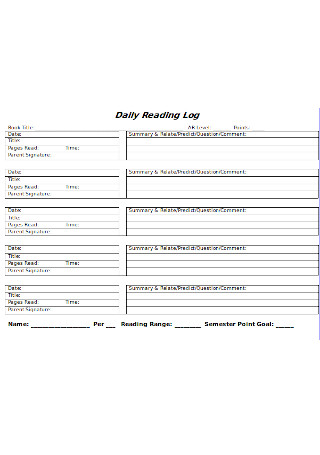
Daily Reading Log
download now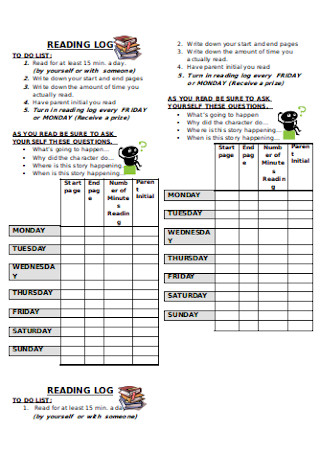
Reading Log for Kids
download now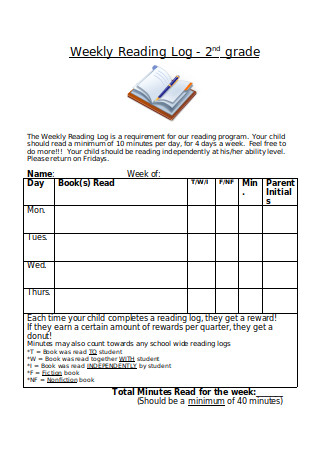
Weekly Reading Log – 2nd Grade
download now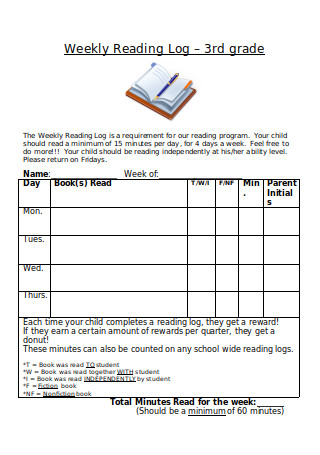
Weekly Reading Log – 3rd Grade
download now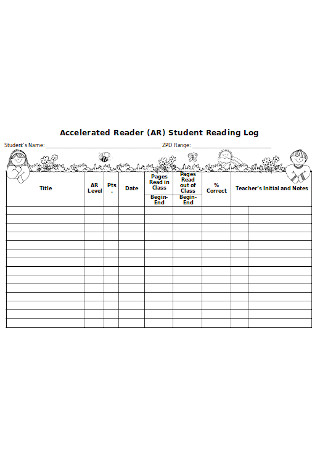
Accelerated Reader (AR) Student Reading Log
download now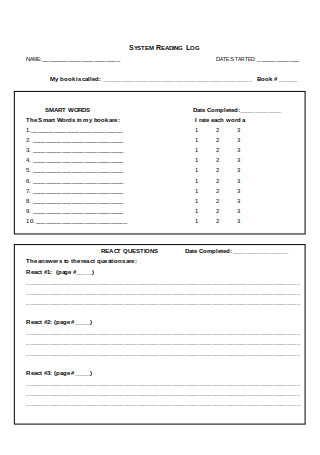
System Reading Log
download now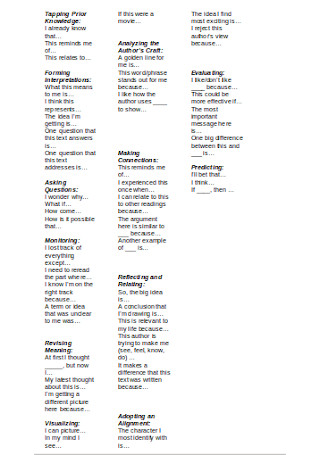
Daily Reading Log for Sentence Starters
download now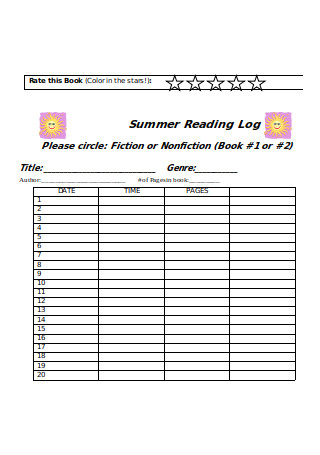
Summer Reading Log
download now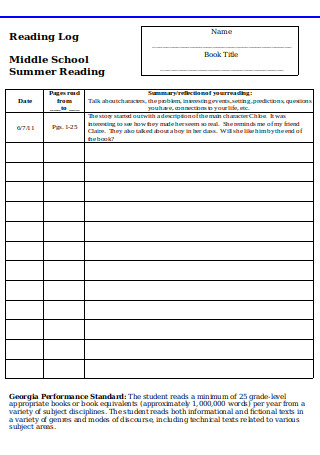
Middle School Reading Log
download now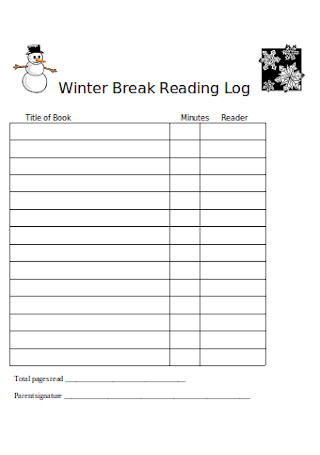
Winter Break Reading Log
download now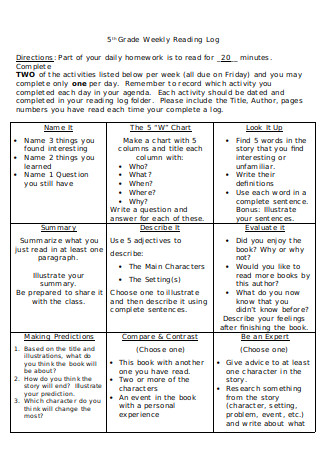
5th Grade Weekly Reading Log
download now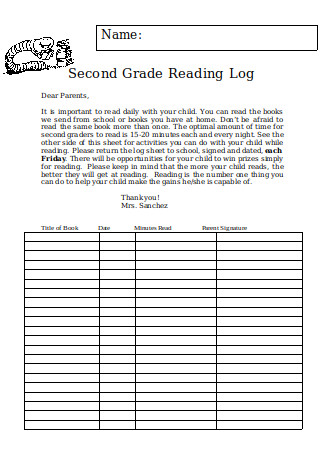
Kindergarten Reading Log
download now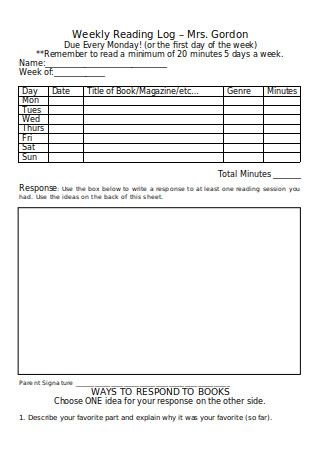
Weekly Reading Log for Adults
download now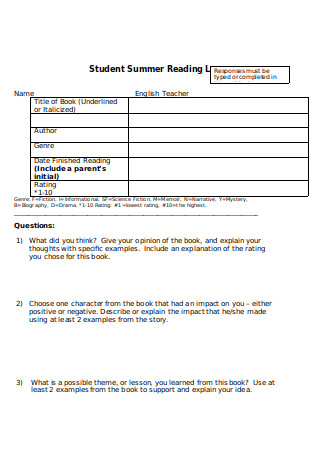
Student Summer Reading Log
download now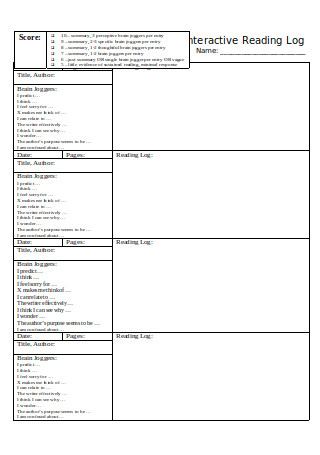
Interactive Reading Log
download now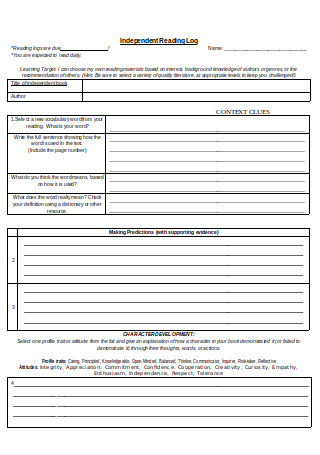
Independent Reading Log
download now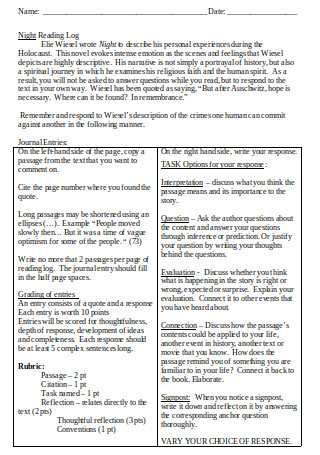
Night Reading Log
download now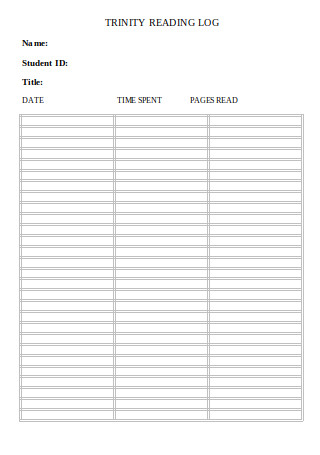
Trinity Reading Log
download now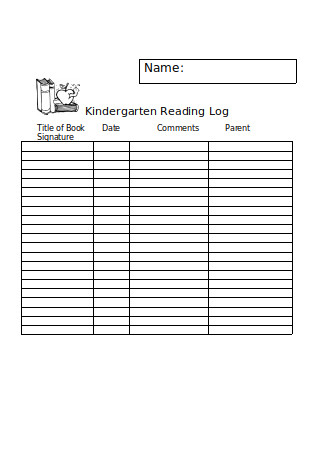
Sample Kindergarten Reading Log
download now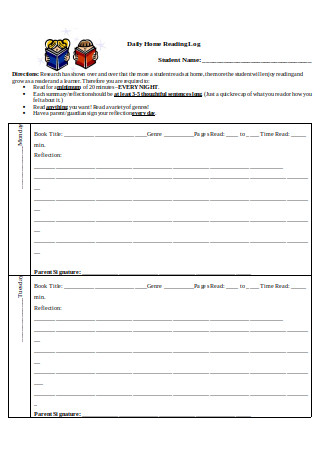
Daily Home Reading Log
download now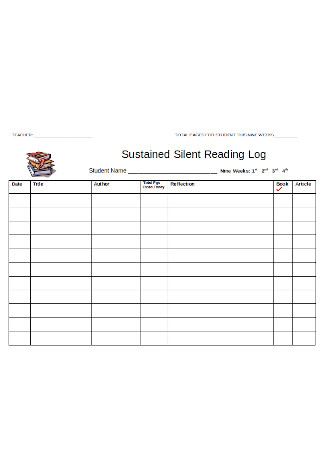
Sustained Silent Reading Log
download now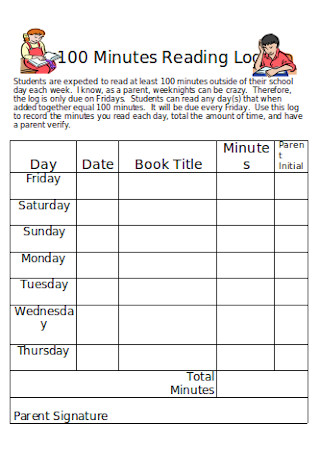
100 Minutes Reading Log
download now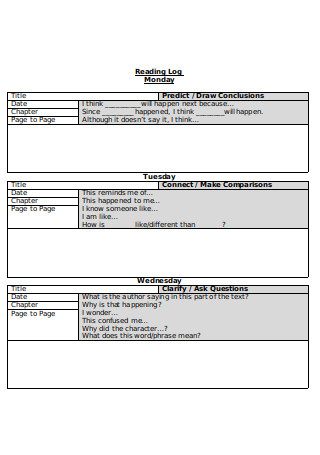
Reading Log and Summary
download now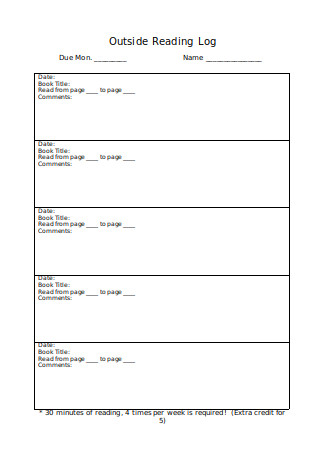
Outside Reading Log
download now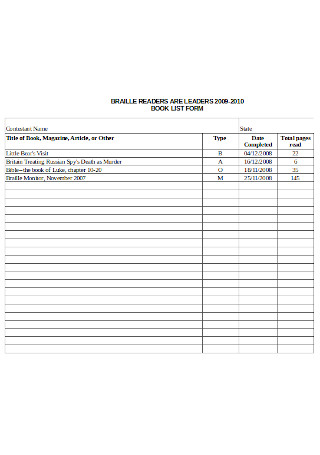
Excel Reading Log
download now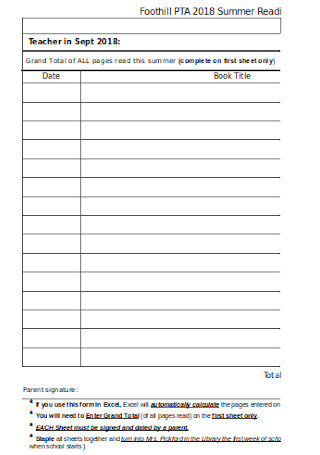
Summer Reading Log Sample
download now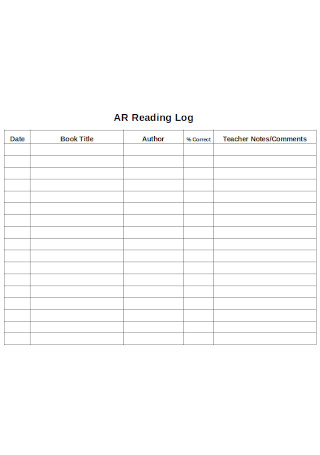
AR Reading Log
download now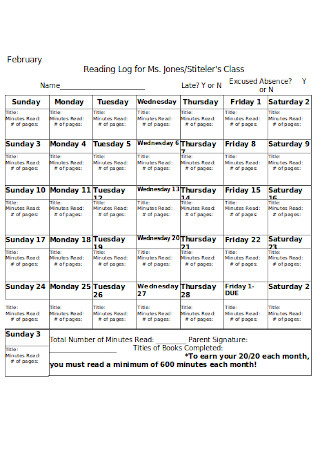
February Reading Log
download now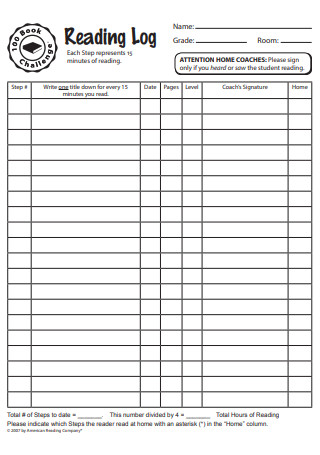
Reading Log for Grades 3-5
download now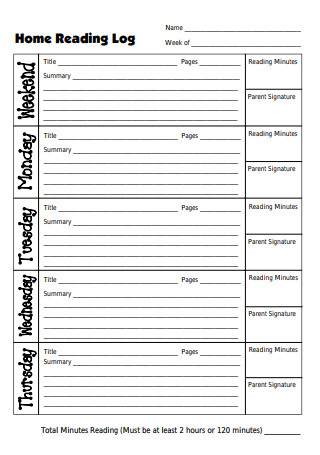
Simple Home Reading Log
download now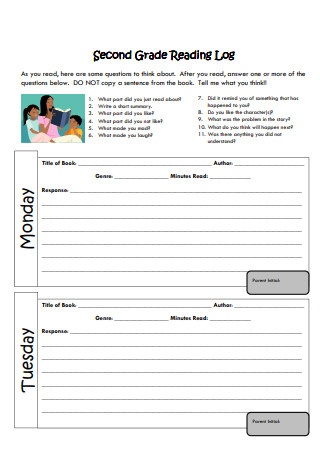
2nd Grade Reading Log
download now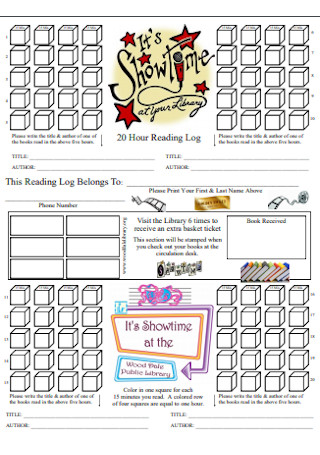
20 Hour Reading Log
download now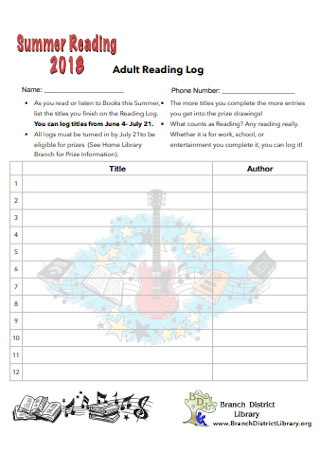
Adult Reading Log
download now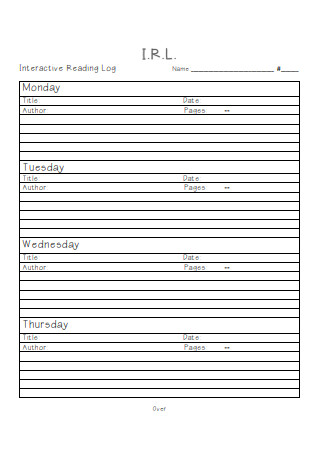
Sample Interactive Reading Log
download now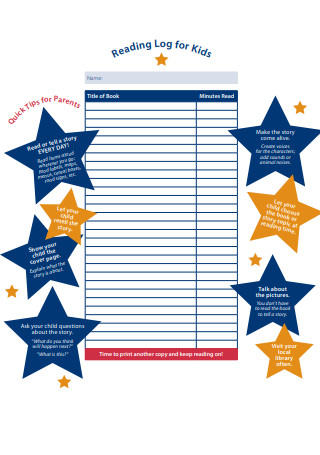
Simple Reading Log for Kids
download now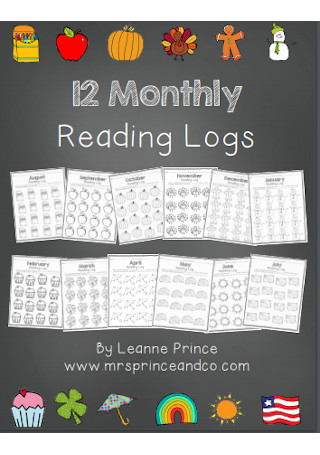
Monthly Reading Log
download now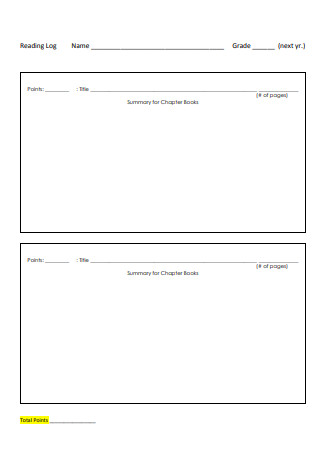
Kids Summer Reading Log
download now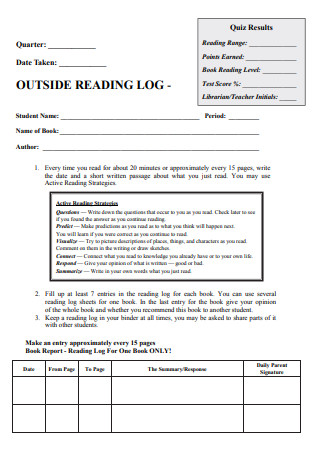
Outside Reading Log in PDF
download now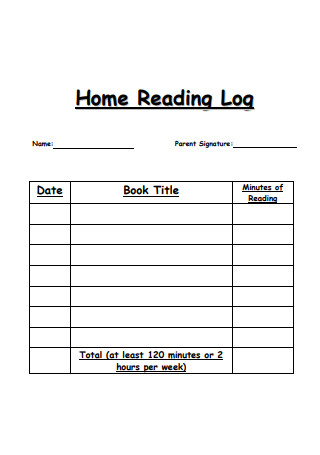
Home Reading Log
download now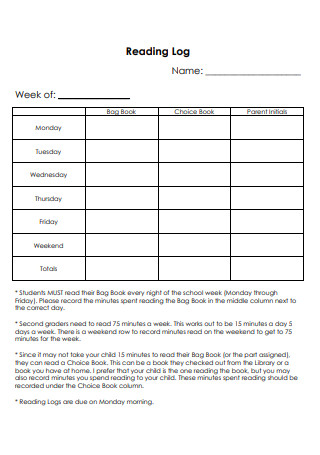
Reading Log Template
download now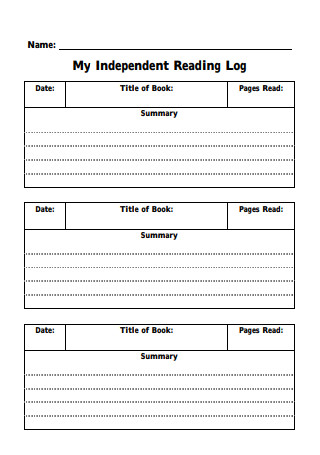
Independent Reading Log Sample
download now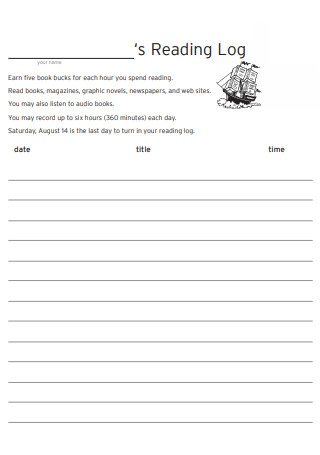
Teen Reading Log
download now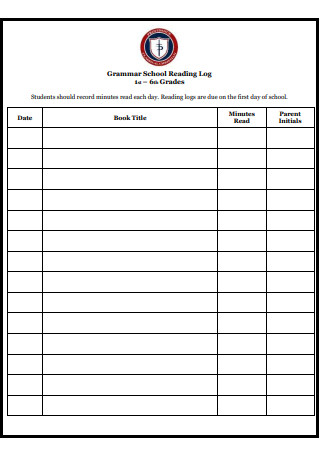
Grammar School Reading Log
download now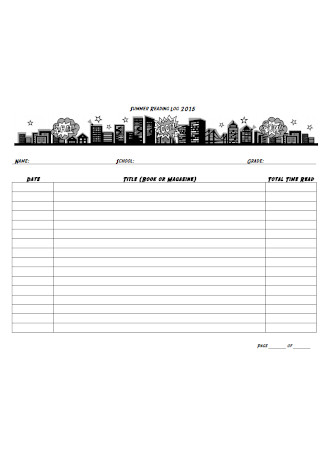
Paper Reading Log
download now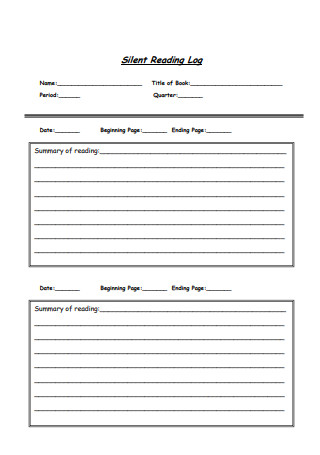
Silent Reading Log
download now
What Is a Reading Log?
A reading log contains the details of a reading material that an individual just read. Its basic contents include book titles, author names, and other bibliographical information. It may also include book-related details such as the plot details, character names, main conflict, and etc. Other than that, it can also include a person’s journal entry that narrates his or her insights, impressions, and opinions regarding the book.
A reading log can be used for classroom and personal purposes. In school, a reading log is used to create a habit of reading among students, especially young children who just learned how to read. A reading log is often given as a reading assignment to students with the goal of motivating them to read. A reading log used for personal purposes tends to be freer since anything can be written in it such as favorite scenes, remarkable quotes, significant takeaways, and even a journal entry of the reader’s experience while being engulfed by the book.
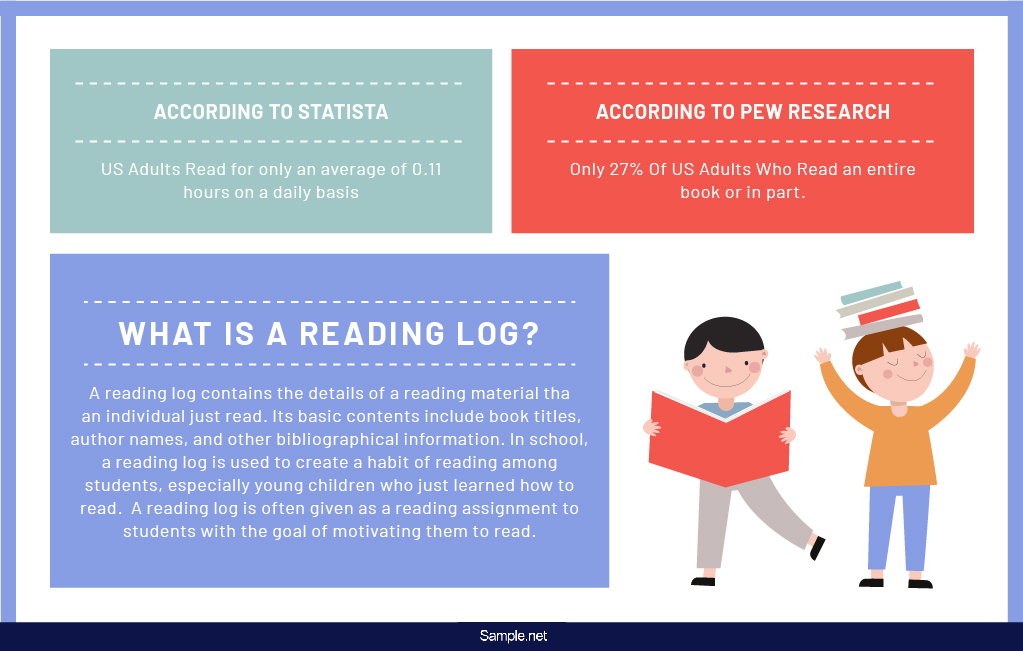
Why Keep a Reading Log?
Keeping a reading log provides so many benefits that both children and adults can acquire. To expound on the reasons why you should consider keeping a reading log to track your reading adventures, read on below. If you need the motivation to fulfill your required reading in school, you should also read below to get inspired.
What to Include in a Reading Log?
The contents of a student reading log depend on teachers and the grade level of the students they give reading assignments. If you are teaching younger students, the contents of your reading log will simply include the title of the book they read along with the date when they finished reading it. For older students, additional information is required from them. To be acquainted with all the possible contents that could make up a reading log template, read on below to know more.
How to Keep a Reading Log
Keeping a reading log is easy if you know what to jot down. If this is still your first time to keep a reading journal, ensure that you know the steps on how to do so. That said, be sure to check out the following guidelines below so you would know how to keep a reading log successfully and efficiently.
Step 1: Get Yourself a Notebook or Download a Ready-Made Template
Opting for digital reading log alternatives is convenient but nothing can beat writing things down. That is why it is ideal that you get yourself a quality notebook or journal and use it for your reading log. By writing things down, it is easier for you to stay motivated to consistently fulfill your assigned readings. Another convenient option is to download a ready-made reading log template that already contains all of the elements you would need for in a reading log.
Step 2: Incorporate Required or Preferred Headers
As soon as you already complete all your assigned readings, you can already incorporate the required or your preferred reading log headers. Such details include the book title, book author, publication year or date, publishing company, book genre, start and end dates, and the total number of hours read. See to it that you incorporate the elements required by your teacher if you are keeping a reading log for a class requirement. There are other items you can incorporate in your reading log if you are only reading for fun and that includes memorable character dialogue, remarkable lines, your thoughts and opinions of a certain page, and you can even include your personal rating.
Step 3: Read What You Have to Read
What will you write in your reading log if you would not read? To successfully keep writing for your reading journal, you need to actually read something in order to do so. To read consistently often requires discipline especially if you are not a reader but if your class teacher assigned you to read a book or if you challenged yourself to read a certain number of books, then you have no choice but to read. If you are only reading as a personal pursuit, you may consider asking recommendations from people whom you know has a good taste in reading. While reading, you may consider taking down some notes as you go so you would know what you want to include in your reading log. You can also write down the questions running in your mind as you get deeper into your reading.
Step 4: Give Yourself Some Time to Ponder
If your reading log contains additional details other than the basic bibliographic citation information, consider giving yourself some time to ponder before you write the details down on your log. By doing so, you ensure that what you write in your reading log is something you would actually want to read sometime in the future and that it can actually provide wholesome and informative insights. However, don’t wait too soon until you already start to forget some details in the book.
Step 5: Ready, Set, and Write!
After giving things some thought, proceed and fill out the additional details that you want to include in your log. Fill out every single header you added. Be sure to write everything you want to write in your reading log and, of course, everything that was required for you to write in your class. Consider incorporating what you have taken notes while reading as well as answering some guide questions. Who was your favorite character? What is the moral lesson that you can get from the book? What part of the book struck you the most? If you were required to include a writing journal in your reading log, see to it that you write one that is an actual journal entry that contains sentences and paragraphs instead of bullet points.
Dos and Don’ts of Reading Logs
Is this your first time to keep a reading log? Be sure to take note of any of these dos and don’ts to be further guided in the process.
Dos
1. Do consider making a reading log for other reading materials.
Who says reading logs are exclusively for fiction alone? You can also keep a reading log for other reading materials such as academic books, poetry, play or drama, and prose. Although some categories won’t be necessary for other works of literature, you can easily make adjustments in your reading log.
2. Do read other’s reading log.
If you are keeping a reading log for the first time, you may consider referring to a reading log example. In fact, you can download reading log examples in this very article you’re reading. You may also consider reading other materials such as a reading journal or diaries of other people especially those that were penned by great writers themselves. If you are planning to become a great writer like them someday, you can take notes from them and see how their journey to greatness started and went for them.
Don’ts
1. Don’t overwhelm yourself.
Again, if you are just starting to keep a reading log, you might face challenges here and there such as deciding what to write and what not to write. That is why it is important that you shouldn’t be too hard on yourself and feel too overwhelmed in your attempt to keep a reading log for the first time. Start with the basic headers first such as the bibliographical information before you add miscellaneous items in your log. However, if your teacher has specifically given you a reading log format, be sure to follow through it.
2. Don’t make it overwhelming to read.
Other than minding your feelings, another thing you should consider ae the feelings of the ones who will read your reading log. If it is an assigned task in school by your professor, it is important that you construct the sentences in your log properly and effectively. Be sure to only write what was required by your professor. If you are only keeping a log for personal purposes, you still need to ensure that it does not make you feel overwhelmed while reading it sometime in the future.
Reading logs are fairly easy to keep. Just be sure to follow the dos and don’ts mention in this article and know what its purpose is so you would not take it for granted once it is assigned for you to accomplish in school. Don’t be too hard on yourself and make one from scratch. Instead, download and make use of the reading log templates and examples uploaded to make things easier for you.

